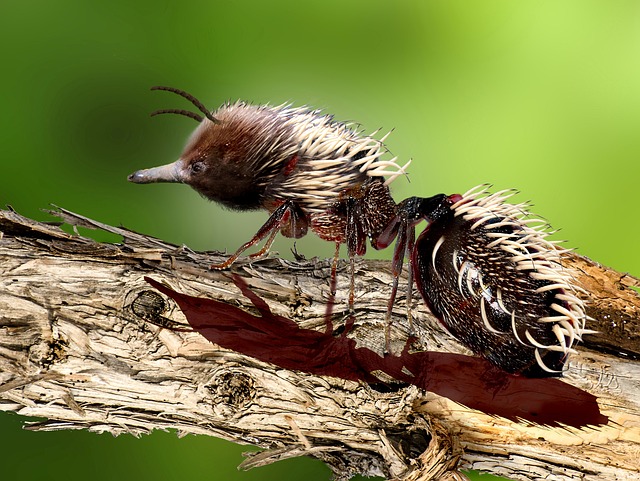Ants, with over 12,000 species globally, cause structural damage and health risks. Traditional chemical methods for pest control for ants have drawbacks like toxicity, cost, and resistance. Eco-friendly alternatives include natural repellents (lemon, peppermint oil), baking soda/boric acid barriers, and DIY baits/sprays. For severe infestations, professional services offer specialized knowledge and tools for swift eradication and prevention. Preventive measures involve cleanliness, sealing entry points, natural repellents, garden maintenance, and regular inspections for effective pest control for ants.
Ant infestations can be a common household nuisance, causing damage to structures and posing potential health risks. Understanding ant behavior and identifying effective pest control methods is crucial for homeowners seeking affordable solutions. This article explores various strategies, from traditional chemical treatments to natural remedies and professional extermination services. By delving into these options, we empower homeowners with the knowledge to manage ants effectively and affordably.
Understanding Ant Infestations: Common Types and Behaviors
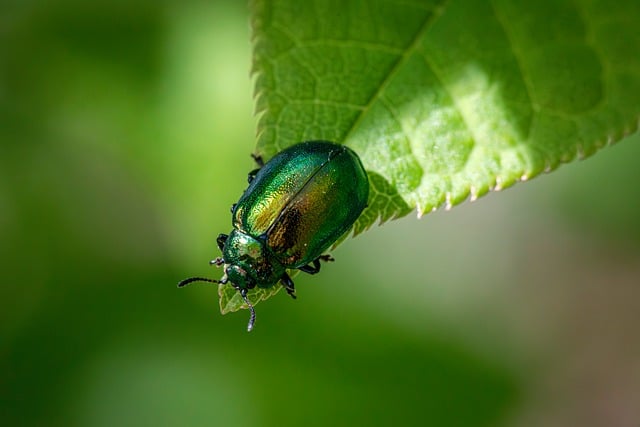
Ant infestations can be a common household problem, and understanding their behavior is the first step in effective pest control for ants. There are over 12,000 known ant species worldwide, but the ones most commonly found in homes include carpenter ants, fire ants, and house ants. Each type has distinct characteristics and behaviors that influence how they invade and interact with their environment.
Carpenter ants, for instance, are known for their wood-chewing habits as they create tunnels for nesting, often causing structural damage. Fire ants, on the other hand, are aggressive and form large colonies, creating unsightly mounds in yards. House ants are highly adaptive and travel long distances to find food sources, often entering homes through tiny cracks and crevices. Recognizing these behaviors is crucial when implementing pest control for ants, as it helps in targeting their specific needs and habitats.
The Impact of Ants: Damage and Health Risks
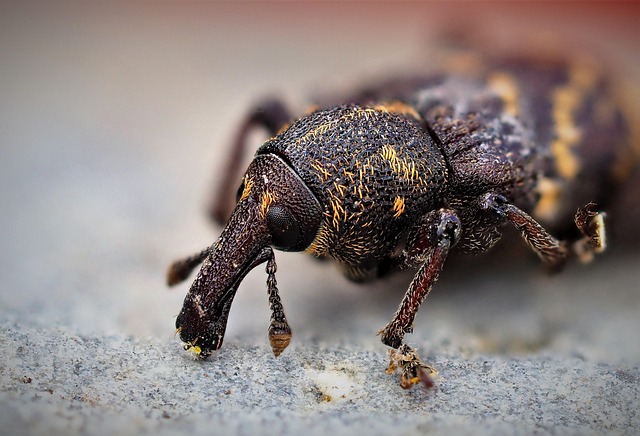
Ants, though small in size, can cause significant damage to homes and buildings when they invade. As social insects, ants live in colonies that can number in the thousands or even millions, making their impact substantial. They create intricate tunnels and pathways, which can weaken structural elements over time, leading to damaged walls, floors, and foundations. These pests also feed on various materials, including wood, insulation, fabrics, and even electrical wiring, resulting in costly repairs.
Beyond physical damage, ants pose potential health risks. Many species of ants carry bacteria, fungi, and parasites on their bodies, which can contaminate food sources and lead to the spread of diseases. In addition, some ant bites or stings may cause allergic reactions or infections, especially in sensitive individuals. Effective pest control for ants is crucial not only for mitigating property damage but also for ensuring a safer living environment.
Traditional Ant Control Methods: Pros and Cons
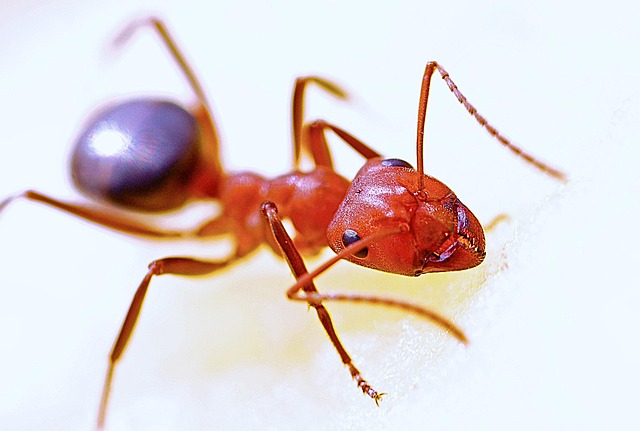
Traditional ant control methods, such as using chemicals and insecticides, have been the go-to solution for many years. These products often offer quick results in eliminating visible ant trails and colonies. However, they come with significant drawbacks. First, insecticides can be highly toxic to both target pests and non-target species, including beneficial insects, pets, and even humans if not used properly. Second, these chemicals are often expensive, requiring frequent purchases and applications to maintain pest control. Additionally, ants can develop resistance to insecticides over time, rendering them less effective.
Moreover, traditional methods fail to address the underlying causes of ant infestations, such as food sources and entry points into homes or buildings. They only provide a temporary solution, leading to recurrent issues with ants. As a result, these approaches not only pose environmental risks but also prove costly in the long run for pest control for ants.
Affordable Pest Control Options for Homeowners

For homeowners looking to keep their spaces ant-free, there are numerous affordable pest control options available that don’t break the bank. One effective and cost-efficient solution is maintaining a clean environment by regularly wiping surfaces, sweeping floors, and promptly addressing any spills or crumbs. Ants are attracted to food sources, so keeping your home spotless can significantly deter them. Additionally, sealing entry points like cracks, gaps in doors, and windows can prevent ants from finding their way indoors. Simple fixations like caulk or weather stripping are readily available and affordable solutions.
Another natural approach involves utilizing essential oils known for their ant-repelling properties. Lemon, peppermint, eucalyptus, and cinnamon oils can be mixed with water and sprayed around areas prone to ant activity. These scents disrupt the ants’ pheromone trails, disorienting them and potentially driving them away. Moreover, baking soda and boric acid mixed in small quantities create an effective ant barrier that can be applied along baseboards or other entry points without harming pets or humans when used responsibly.
Natural Ant Repellents and DIY Solutions
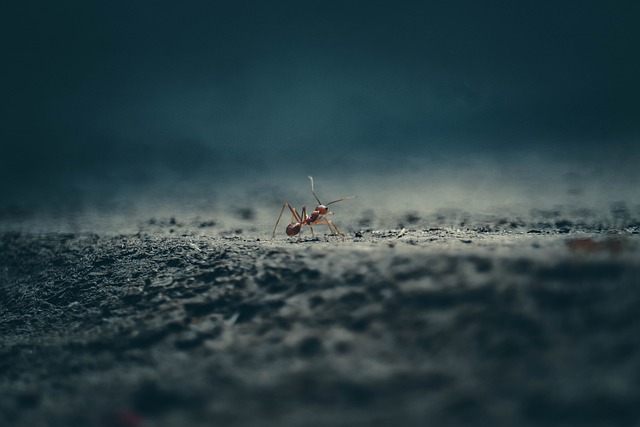
Many people are turning to natural ant repellents and DIY solutions as an affordable alternative to traditional pest control for ants. These methods leverage essential oils, plant extracts, and simple household ingredients to create effective barriers against ants without resorting to harsh chemicals. Essential oils like lemon, peppermint, and tea tree oil have been shown to deter ants due to their strong scents, which disrupt the pheromone trails that guide them.
DIY solutions range from creating natural ant baits using borax and sugar to making homemade sprays with vinegar and water. These options are not only cost-effective but also safer for pets and the environment. By utilizing these natural repellents, individuals can take proactive steps towards managing ant infestations while maintaining a healthier living space.
Professional Ant Extermination Services: When to Hire Experts
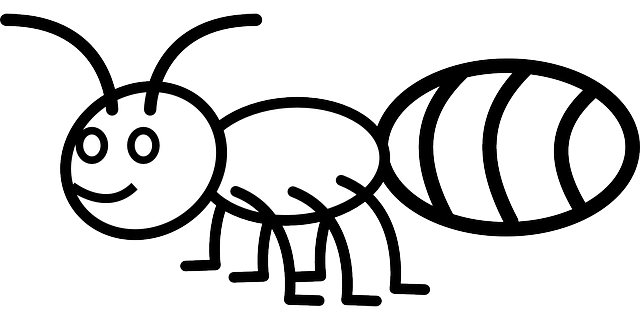
Ant infestations can be a nuisance, but when they become persistent and challenging to manage, it’s time to consider professional ant extermination services. While DIY methods may provide temporary relief, they often don’t address the root of the problem, leading to repeated invasions. Professional pest control for ants offers specialized knowledge and advanced tools that can swiftly eradicate existing colonies and prevent future outbreaks.
Hiring experts in ant extermination is particularly beneficial when dealing with large-scale or hard-to-reach infestations. These professionals are trained to identify the specific species of ants, understand their behavior, and locate hidden nests. They employ safe, effective treatments tailored to your home’s unique needs, ensuring minimal environmental impact. By enlisting their aid, you gain peace of mind, knowing that experienced hands are handling a potentially complex situation, offering a lasting solution to your ant problem.
Preventive Measures: Long-term Ant Management Strategies
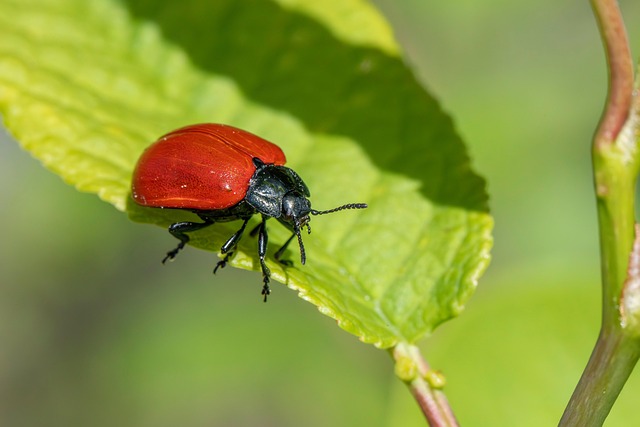
Ants are persistent pests, but effective preventive measures can significantly reduce their presence in your home or property. Implementing long-term strategies for ant management is key to ensuring a pest-free environment. One of the most important steps is maintaining cleanliness; regular cleaning and sanitizing, especially in areas where food is prepared or stored, can deter ants from entering. Sealing entry points and cracks around doors and windows also prevents them from finding their way inside. Additionally, storing items in airtight containers, wiping up spills immediately, and keeping garbage bins secure and well-maintained are crucial measures.
Using natural repellents like citrus oils, mint, or cinnamon can be an eco-friendly alternative to traditional pest control for ants. Maintaining a balanced garden, trimming trees and shrubs away from the house, and promptly addressing any tree cavities or wood damage can also help. Professional pest control services can offer tailored solutions, including setting up monitoring systems and applying targeted treatments if necessary. Regular inspections are vital to identifying potential ant trails and quickly addressing new infestations, ensuring effective long-term ant management.
